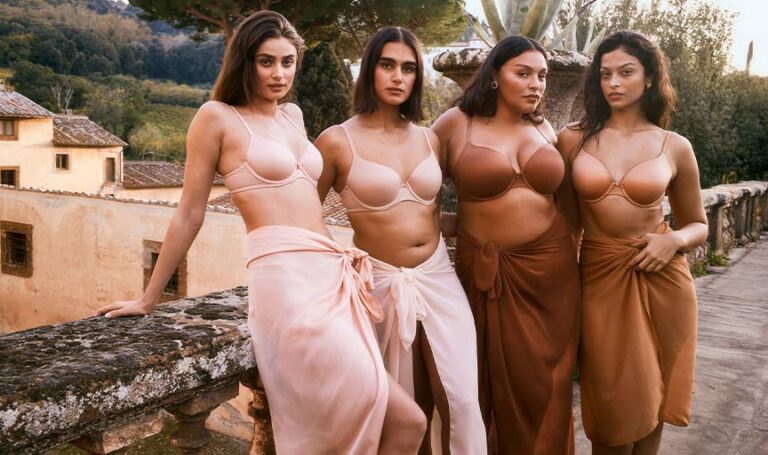Victoria’s Secret already ditches feminist makeover after sales drop

Since the infamous American lingerie, clothing, and beauty retailer Victoria’s Secret decided to move away from its hyper-sexualised image, it’s been reported that the brand has seen a significant revenue drop. After it cancelled its famed fashion show in 2019, it went on to unveil a new roster of stars to represent the brand under its revamped marketing model in 2021. Victoria’s Secret was back, with no Angels in sight.
Fast forward to 2023 however, and the company is reportedly already ditching its woke, feminist makeover as it hasn’t translated to immediate lucrative business success. In a CNN article published on Tuesday 17 October 2023, Business of Fashion’s Retail Correspondent Cathaleen Chen reported that “the radical transformation of Victoria’s Secret is over.”
@offtrendhq Did you guess it right? 💀 Follow offtrend for more content like this ✨ #victoriasecret #victoriassecret #vsangel #victoriasecretangel #victoriasecretmodel #bellahadid #adrianalima
♬ original sound - Offtrend
Although Chen did note that there were some successes, including a campaign to launch the ‘new’ Victoria’s Secret featuring football player Megan Rapinoe, transgender model Valentina Sampaio and other diverse models, she went on to explain that these wins never translated into sales. “The brand is projecting revenue of $6.2 billion this fiscal year, down about 5% from the previous year and well below the $7.5 billion from 2020,” she wrote.
The drop in Victoria’s Secret’s sales also followed the company’s move to make its board of directors mostly female. In 2021, Rapinoe called out what the brand had been before the revamp, claiming it had sent out a “really harmful” message that was “patriarchal, sexist, viewing not just what it meant to be sexy but what the clothes were trying to accomplish through a male lens and through what men desired.”
More recent campaigns have featured the likes of Hailey Bieber and Emily Ratajkowski, who, let’s be honest, would have fit right in with go-to Angels Heidi Klum and Adriana Lima at the 2007 show, as well as more ‘inclusive’ ambassadors, such as models Paloma Elsesser and Ali Tate-Cutler.
For all its problems in recent years, Victoria’s Secret remains the largest underwear retailer in North America, with about 20 per cent of the market share, according to its own analysis.
“We’ve been insufficiently differentiated in this difficult market,” chief executive Martin Waters told Chen. “(But) our ambition of being the world’s leading fashion retailer of intimates apparel is unchanged.”
And you can already guess what that means… Bye-bye authentic inclusivity, hello 23-inch waists.





